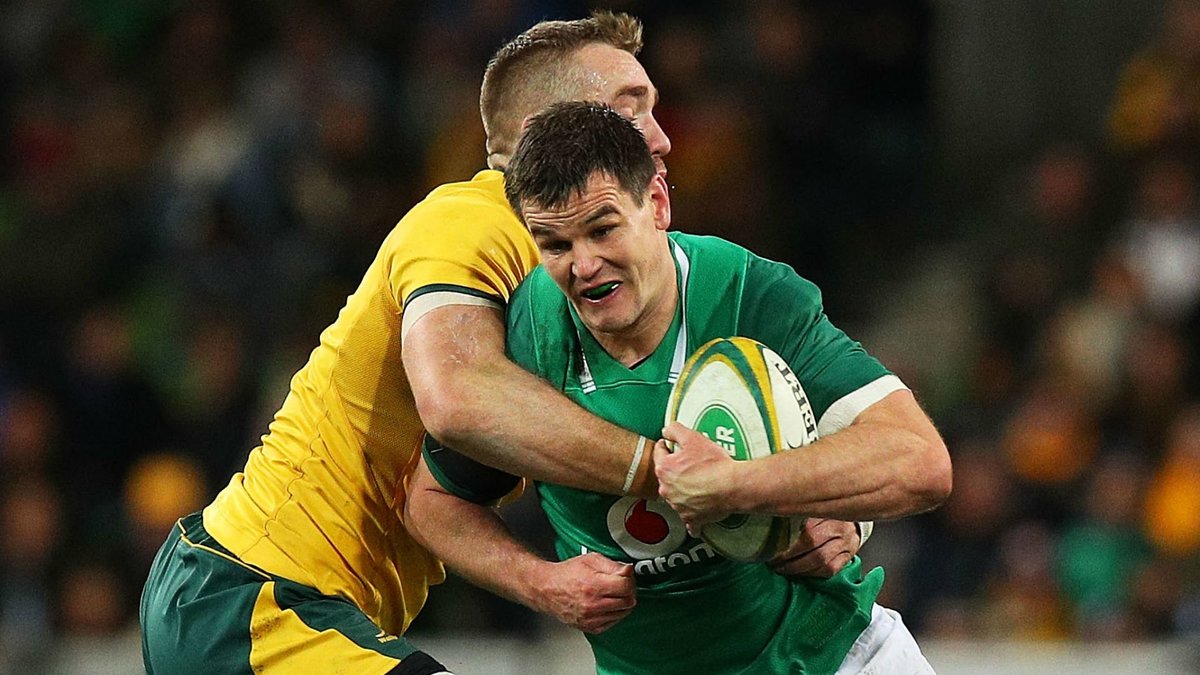Australia v Ireland series set for thrilling conclusion

My disgust in rugby and the way the game is headed was absolute at the 11 minute-30 second mark of the All Blacks v France game.
I saw French fullback Benjamin Fall with both eyes on the ball and both feet off the ground challenge Beauden Barrett for a high ball, his only offence not being able to jump as high as Barrett.
Barrett looked like an AFL player in his impressive leap. He had a long way to fall, and was unfortunately concussed once he did. This was not the fault of Benjamin Fall, but the TMO George Ayoub and Referee Angus Gardner (unfortunately both Australians) saw it that way and ended the contest early by red carding him. The Test match was effectively over, with the score kept low by an All Blacks team in second gear and a shorthanded French team willing to scrap it out for 80 minutes.
The influence of the TMO is becoming too much, with referees referring to them even when they are in a good viewing position to award a try or rule on a misdemeanor.
Watching the Australia v Ireland match I saw referee Paul Williams clearly sight a legal tackle made by Kurtley Beale, but still refer to the TMO to check if it was around the head of the Irish player.
I do agree with All Black coach Steve Hansen when he suggested that a report system is needed in rugby union. Implementing this system would mean a player can be placed on report by the referee, stay on the field and be dealt with by a judiciary after the game. A system that works very well for the NRL and the fans are kept happy by keeping the game a contest.
My apologies to the great Gianni Versace but you wonder what briefings World Rugby are giving Test match officials. Fans are after a contest and the nature of the game is a physical contest, it is not a Milan catwalk. The speed at which the TMO and the referee are prepared to ruin a contest points to World Rugby directives. Poor France have certainly been on the receiving end for two weeks in a row.
Congratulations to Ireland on their 26-21 win in Melbourne, a credit to the Irish coaching staff and team to turn around after the loss in Brisbane. I was at the last Irish win on Australian soil 39 years ago at the Sydney Cricket Ground, 16th June 1979. Now that the drought has broken for the Irish it sets up a great series decider in Sydney next weekend.
What a difference a week makes in rugby. The Irish were up-tempo, bashing over the gain line, hitting the rucks in numbers, latching on and driving the ball carrier through the tackle.
The Wallabies strengths from last week were nullified. David Pocock was hit with a wall of green jerseys every time he tried to jackal the ball in a tackle. The ball was kept away from Israel Folau or he was hit with numbers before he could get in stride. The Wallabies had no ball, and the Irish just kept hitting it up all night and not giving away possession. The Irish prop Tadhg Furlong finishing with the most metres gained summed up the night, he bashed it up with style and scrummed well too.
That the Wallabies managed to keep the score so low was a credit to them, they hung in there even though they had no ball and the Irish were on a roll. Wallaby Coach Michael Cheika has some work to do for next week after he was clearly outpointed by Ireland Coach Joe Schmidt in Melbourne.
The Irish weaknesses from Brisbane were corrected and they beat the Wallabies at their own game; up-tempo, quick ruck ball, passing to use the width of the field. The big hits in the first up tackles were gone this week for the Wallabies as the Irish were not standing back and watching, they got in quick and assisted the ball carrier. It is amazing how David Pocock, the best player on the field last week, can be cancelled out just seven days later by some clever coaching.
It is all on the line in Sydney next weekend and the game is too hard to call. Both teams are even money and it will depend on how injuries can be covered and what the coaches can do to get their teams up for the game and what tactics are used.
The Wallabies have to match the Irish up-tempo game from the outset. They seemed to always be on the back foot in Melbourne. They also need some ball and they need to commit to a system to disrupt the wave of Irish recycling at the breakdown.
To win the Wallabies need to adapt, not like in Melbourne where they stood back and watched the Irish hit it up and recycle beautifully all night. With a surname like Ryan, of course I will be cheering whichever team wins.
In other news:

























































